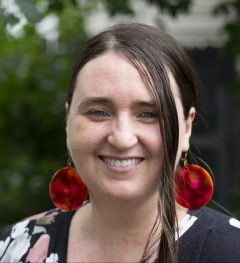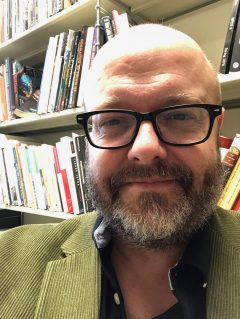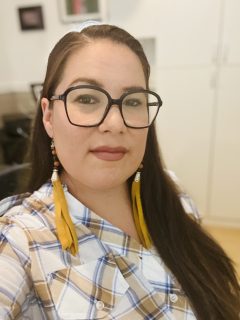Past Event! Note: this event has already taken place.
Listening Café – Listening as Community-Engaged Research Methodology
November 3, 2023 at 12:30 PM to 2:00 PM
| Location: | Jacob Siskind Music Resource Centre, 5th floor MacOdrum Library |
| Cost: | Free |
Refreshments will be served.
How can listening operate as a research method to foster understanding and build community? Join us for short presentations and conversation with three community-engaged researchers who bring perspectives on listening as community-engaged research methodology from different fields: creative technologies, film, and criminology. All are members of LiSTEN – a community-engaged and multidisciplinary research network exploring the complex relationship between listening and social transformation in Canada and Canada-in-the-world through research-creation, experiential pedagogies, and scholarship.
Rebecca Caines, School of the Arts, Media, Performance and Design, York University
“Listening with Communities Using Creative Technologies”
Kester Dyer, School for Studies in Art and Culture – Film Studies, Carleton University
“Reflections on the Inaugural Carleton University Indigenous Media Making Summer Institute”
Natasha Stirrett, Institute of Criminology and Criminal Justice, Carleton University
Cedar as Medicine: Presence and Listening as a Methodology

Rebecca Caines
Rebecca Caines (York University, Toronto, Canada) is an interdisciplinary artist and scholar, whose work crosses between creative technologies and socially engaged art. She has created award winning, large scale, participatory projects in theatre, installation art, and digital arts with community partners around the world; and publishes on a range of topics including sound art, improvisation, community-engaged research, socially responsive technologies, and contemporary performance. She is the editor (with Ajay Heble) of The Improvisation Studies Reader: Spontaneous Acts (Routledge 2015). She is currently project lead for a brand-new program in Creative Technologies, being developed for York’s new campus in Markham and launching in Fall 2024.

Kester Dyer
Kester Dyer is an Assistant Professor in Film Studies at Carleton University. His pronouns are he/him. He is a settler scholar with a Québécois and British background and was born and raised as an uninvited guest in Tiohtià:ke on the unceded land of the Kanien’kehá:ka nation. His teaching and research focus is on Québec and Indigenous film and media and he has published several articles and book chapters on these topics. His current book project titled Otherworldly Incursions: The Supernatural in Québec Cinema comprises a broad exploration of the Québec film corpus since the 1990s and analyzes how supernatural tropes across genres reveal key information about the Québec social imaginary’s struggle to delineate relationships between historically dominant and marginalized groups. In parallel, he has worked closely with the Wapikoni Mobile studio on community-building research-creation projects aimed at emerging Indigenous media-makers.

Natasha Stirrett
Natasha Stirrett is an Assistant Professor at the Institute of Criminology and Criminal Justice (ICCJ). She is a member of Ermineskin Cree Nation who grew up in the traditional territory of the Haudenosaunee in the Cornwall/Akwesasne area. Her current community-grounded research employed an emergent in-process methodology based on the principles of the four sacred medicines. She is currently principal investigator of the SSHRC (Insight Development Grant) funded research project “Mapping the Sixties Scoop Diaspora, Criminalization and [Re] Imagining Indigenous Communities through Storytelling” with Jeffrey Monaghan (ICCJ) and Colleen Cardinal (Sixties Scoop Survivors’ Network). This project thinks about the role of criminalization and punishment in the experiences of Sixties Scoop Survivors. It collaborates, supports, and advances the Survivor-led (SSN) “In your Own Words” GIS mapping website and engages in capacity and network-building. The goals of this project are both research-oriented and committed to advancing public knowledge, education, and community.